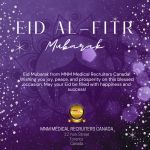Preparing your documents properly is not just a formality — it can make or break your application. Missing paperwork or unverified credentials often cause delays in licensing, interviews, or even job offers. However, when your documents are complete and organized, the process becomes much smoother and faster.
Key Documents Hospitals Require
Updated Curriculum Vitae (CV)
Your CV is the first impression hospitals will have of you. Therefore, make sure it is:
-
Well-structured and professional.
-
Highlighting your education, clinical experience, and skills.
-
Free from gaps in employment history.
Many hospitals prefer a specific CV format. Recruitment agencies like ours help candidates prepare CVs according to those exact requirements.
Educational Certificates & Clinical Qualifications
Hospitals abroad always verify your academic and clinical background. You should prepare:
-
Bachelor’s or Master’s degree certificates in your medical field.
-
Specialization degrees or board certifications, such as:
-
American Board Certification
-
German Board
-
Spanish Board
-
UK Royal Colleges (MRCP, FRCS, MRCOG, FRCOG, FRCP, etc.)
-
Canadian Board Certification (Canadian Fellowships)
-
Australian Fellowship or Board Certification
-
-
Subspecialty fellowship certificates, if applicable.
-
Additional diplomas or short courses relevant to your specialty
Furthermore, ensure all documents are clear, legible, and officially issued by your university or board. Internationally recognized board certifications often determine your eligibility for senior-level positions such as consultant or specialist.
Professional License
A valid license proves your legal authority to practice. This may include:
-
Your home country’s license or last country of employment.
-
A local license application, such as:
-
SCFHS (Saudi Commission for Health Specialties) in Saudi Arabia.
-
DHA (Dubai Health Authority) in Dubai.
-
HAAD in Abu Dhabi.
-
Without a license, hospitals cannot proceed with your recruitment.
Passport Copy
Although simple, your passport is vital for both credentialing and visa processing. Make sure it is valid for at least six months from your planned date of travel.
Experience Certificates
Experience certificates provide hospitals with proof of your professional background. These letters should include:
-
Your official job title.
-
A clear description of your duties and responsibilities.
-
Verified employment dates with an official stamp or signature.
In addition, most hospitals require 2–3 years of post-graduation experience, depending on the role.
Professional References
Some hospitals may also ask for references from previous supervisors, department heads, or senior colleagues. These letters confirm your skills, reliability, and character.
Additional Documents (Depending on Hospital Policies)
-
Passport-size photographs (white background).
-
Good Standing Certificate from your medical council.
-
Specialty board certifications for consultants and senior doctors
Tips for Smooth Document Preparation
To make the process easier, follow these steps:
-
✅ Keep both originals and scanned copies ready.
-
✅ Double-check that names and dates are consistent across all documents.
-
✅ Get your documents attested, if the country of employment requires it.
-
✅ Work with a trusted recruitment agency to avoid unnecessary delays.
Document preparation may seem overwhelming at first. However, with the right guidance, it becomes a straightforward process. Having your credentials ready not only helps hospitals verify your eligibility but also speeds up your licensing and deployment.
At MNM Medical Recruiters Canada, we support candidates at every stage. From reviewing your documents to formatting your CV in line with hospital guidelines, we ensure your application is professional and complete.
By preparing your credentials in advance, you take the first confident step toward your international medical career.




Recent Comments